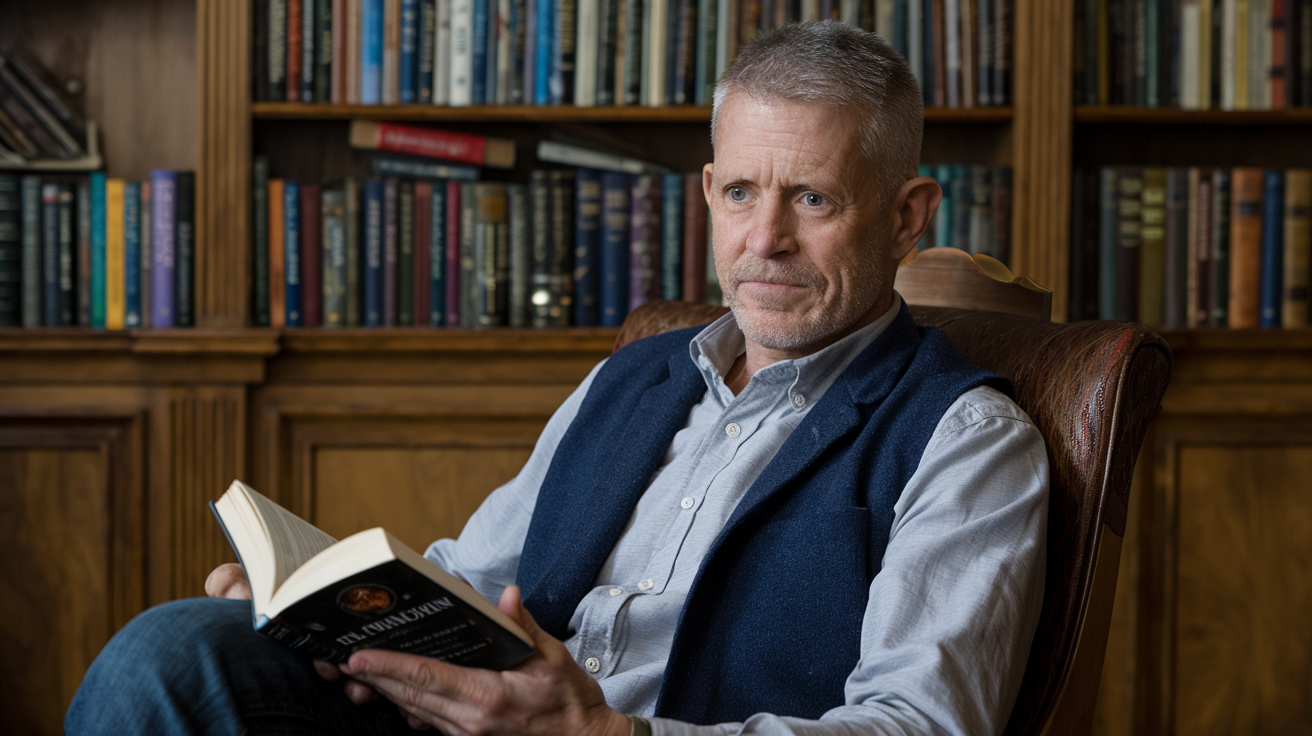Stephen R Donaldson, a celebrated name in the realm of speculative fiction, has not only mesmerized readers with his compelling novels but also with his thought-provoking essays on fantasy. His insightful writings delve into the complexities of the genre, exploring its cultural significance, philosophical undertones, and imaginative boundaries. Stephen R Donaldson essays on fantasy reflect his profound understanding of the art and craft of storytelling, offering valuable perspectives for both readers and writers.
The Legacy of Stephen R Donaldson in Fantasy Literature
Before diving into the realm of essays, it’s essential to understand the stature of Stephen R Donaldson in the literary world. He is best known for The Chronicles of Thomas Covenant, a groundbreaking fantasy series introducing readers to a reluctant, flawed hero grappling with moral and existential dilemmas. This series has often been regarded as one of the pillars of modern fantasy, alongside works by J.R.R. Tolkien and Ursula K. Le Guin.
Donaldson’s fiction is characterized by its intricate plots, moral ambiguity, and richly developed characters. These qualities naturally extend to Stephen R Donaldson essays on fantasy, where he dissects the genre with intellectual rigor and emotional depth.
Stephen R Donaldson’s Perspective on Fantasy as a Literary Genre
In his essays, Donaldson emphasizes that fantasy is not merely a form of escapism but a powerful medium for exploring universal truths. He argues that fantasy allows authors and readers to address questions about identity, morality, and the human condition. By placing characters in extraordinary worlds and situations, fantasy provides a unique lens through which reality can be examined more deeply.
A recurring theme in Stephen R Donaldson essays on fantasy is the genre’s ability to confront existential fears and ethical dilemmas. He posits that by projecting these issues into fantastical contexts, authors can strip away cultural and historical biases, enabling readers to engage with them more objectively. For Donaldson, this is one of the greatest strengths of fantasy: its capacity to explore the essence of what it means to be human.
The Role of Conflict and Redemption in Fantasy
One of the recurring ideas in Stephen R Donaldson essays on fantasy is the significance of conflict and redemption. Drawing from his works, particularly the struggles of Thomas Covenant, Donaldson discusses how fantasy protagonists often face internal and external conflicts that test their resilience and morality. As a theme, Redemption is deeply rooted in Donaldson’s essays, as he believes it mirrors the universal human desire for growth and transformation.
Through his essays, Donaldson explains that fantasy narratives often parallel the journey of self-discovery. By overcoming seemingly insurmountable challenges, characters in fantasy novels provide readers with hope and inspiration to face their struggles. This thematic richness is what makes fantasy a genre of enduring relevance.
The Philosophical Foundations of Fantasy in Donaldson’s Essays
Philosophy plays a vital role in Stephen R Donaldson essays on fantasy. He frequently explores how fantasy can act as a bridge between abstract philosophical ideas and accessible storytelling. Donaldson believes the genre’s speculative nature is ideal for tackling existentialism, determinism, and free will.
For example, Donaldson has written about how fantasy worlds are often governed by unique rules and systems, reflecting the philosophical frameworks within which the characters operate. This allows readers to question and reinterpret their worldviews. Donaldson’s essays suggest that fantasy is not merely a playground for the imagination but a workshop for intellectual and spiritual exploration.
The Cultural Impact of Fantasy: Insights from Donaldson’s Essays
In Stephen R Donaldson essays on fantasy, he frequently discusses the genre’s cultural impact. He acknowledges that fantasy has often been marginalized within literary circles but argues that its influence on popular culture is undeniable. From the rise of blockbuster films and television series to the growing popularity of fantasy literature, Donaldson explores how the genre has evolved into a powerful force shaping modern storytelling.
Donaldson also highlights how fantasy is a repository for myths and archetypes, connecting contemporary audiences with timeless narratives. His essays underscore the genre’s role in preserving cultural heritage while challenging societal norms and expectations.

Writing Fantasy: Donaldson’s Advice for Aspiring Writers
Stephen R Donaldson essays on fantasy are a treasure trove of advice for aspiring writers. He emphasizes creating believable worlds, compelling characters, and intricate plots. According to Donaldson, authenticity is key in fantasy writing, as it allows readers to suspend disbelief and fully immerse themselves in the story.
One of Donaldson’s notable insights is the balance between imagination and discipline. While fantasy writers must have vivid imaginations, they must also adhere to the internal logic of their created worlds. Donaldson’s essays provide practical guidance on achieving this balance, making them an invaluable resource for writers looking to master the genre.
The Future of Fantasy Literature: Donaldson’s Vision
In his essays, Stephen R Donaldson often reflects on the future of fantasy literature. He believes the genre will continue to evolve, incorporating new ideas and perspectives while staying true to its core principles. Donaldson envisions a future where fantasy becomes increasingly diverse, representing voices and cultures worldwide.
Donaldson’s essays also highlight the potential of fantasy to address pressing global issues, such as climate change, social inequality, and technological advancements. Fantasy can remain a relevant and transformative genre by blending imaginative storytelling with real-world concerns.
FAQs About Stephen R Donaldson Essays on Fantasy
Q1: What are some common themes in Stephen R Donaldson essays on fantasy?
Stephen R. Donaldson’s essays on fantasy often explore themes such as conflict and redemption, the genre’s philosophical underpinnings, and its cultural impact. He also delves into the intricacies of world-building and character development.
Q2: Why does Donaldson believe fantasy is an important genre?
Donaldson views fantasy as a powerful medium for exploring universal truths and addressing existential and ethical questions. He believes the genre’s speculative nature allows readers to engage with complex ideas uniquely and meaningfully.
Q3: How do Donaldson’s essays benefit aspiring fantasy writers?
Stephen R Donaldson essays on fantasy provide practical advice on world-building, character development, and plot construction. They emphasize the importance of authenticity and balance in creating compelling fantasy narratives.
Q4: What role does philosophy play in Donaldson’s essays on fantasy?
Philosophy is a central theme in Donaldson’s essays, as he explores how fantasy can bridge abstract ideas and accessible storytelling. His essays often discuss topics like existentialism, free will, and determinism in the context of fantasy literature.
Q5: How does Donaldson view the cultural impact of fantasy?
Donaldson acknowledges the growing influence of fantasy on popular culture and its role in preserving myths and archetypes. He also sees the genre as a tool for challenging societal norms and exploring diverse perspectives.
Conclusion
Stephen R Donaldson essays on fantasy are a testament to his deep understanding of the genre and its potential to inspire, challenge, and transform. Through his essays, Donaldson invites readers and writers to view fantasy as entertainment and a profound exploration of the human experience. His insights continue to resonate, ensuring his enduring legacy in fantasy literature.




